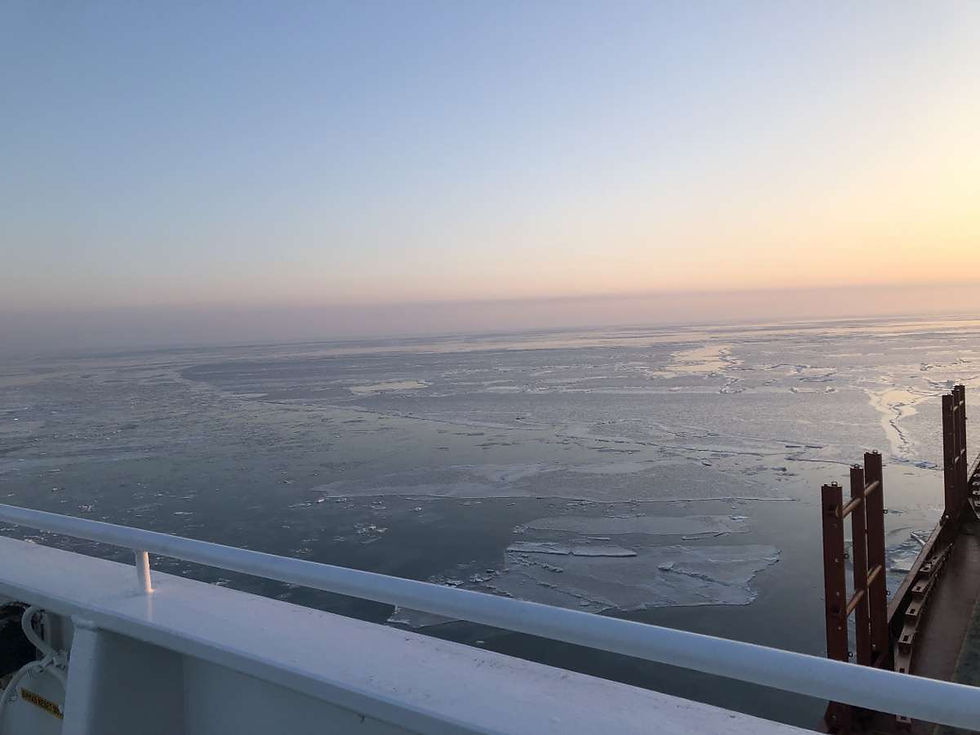Arbitration – failed ETA notices and statement of facts recorded shore loader breakdown
- Oct 5, 2025
- 4 min read
Summary prepared by Prokopios Krikris, FCIArb, Arbitrator
Several issues were considered in this arbitration reference. The first concerned whether the Master had duly tendered the ETA notices to the Charterers, as failure to do so would entitle the Charterers to an additional 24 hours of laytime.
The panel held that the Charterers had failed to demonstrate, by a preponderance of credible evidence, that the Master had failed in his duties, and that such failure was the sole cause of the resulting delays in berthing and loading. Therefore, the panel found that the Charterers' claim for 24 hours of extra laytime failed.
The second issue concerned loading interruptions due to “shore loader breakdown”, which suspended the laytime.
The owners stated that the alleged breakdowns of the shore equipment were, in fact, not caused by technical difficulties but rather due to the unavailability or shortage of cargo. The Master testified that the conveyor-belt system employed in loading the vessel would only run for short periods of time and then stop, whenever there was no cargo on the belt. The Master also testified that certain shore personnel informed him that the stoppages were caused by lack of steady cargo flow, but that he was prevented from further investigations by high barriers and sentries.
Charterers asserted that the stoppages were a result of mechanical breakdowns and that the Statement of Facts for Yuzhny, which was signed by the Master, clearly identified the stoppages as “shore loader breakdowns”. Neither the Master nor Owners ever, at any time protested these stoppages or their notation in the Statement of Facts, and therefore the signed Statement of Fact speaks for itself, and the time so lost does not count as Charterers' time, but qualifies as an exemption from laytime pursuant to Clause 5.
Charterers, cognizant of their burden to prove their prima facie case, to show the ‘breakdowns' were exceptions to laytime which would fall within the ambit of Clause 5, assert that they have done so, and that the signed Statement of Facts provides the proof, being a business record prepared in the ordinary course of business and signed by all parties. Not to be able to rely on the truth of the facts asserted in a signed Statement of Facts would surely jeopardise the normal operation of the maritime industry.
Charterers countered that Owners have failed to prove that the “shore loader breakdowns” were not the mechanical breakdowns, shippers and therefore Charterers claim them to be, and that Owners therefore failed in their attempt to upset Charterers' prima facie case and to alter the facts recorded in the Statement of Facts.
The Panel found for Charterers. The circumstances at Yuzhny at the time of the vessel's stay were undoubtedly ambiguous, but the Panel found that Owners have failed to show by a preponderance of credible evidence that the stoppages were not caused by breakdowns, as Charterers claim they were. The Statement of Facts, as signed by the Master, provided the only tangible evidence. The Owners' failure to promptly act on the Master's report concerning the circumstances at Yuzhny and the coercion under which the Master allegedly had to sign this document did not convincingly persuade this Panel to find otherwise.
Thus, the breakdowns of shore loading equipment fall within the scope of the exemptions from laytime as enumerated in Clause 5 of the Charter Party.
Clause 5 is quoted below for reference:
“The cargo to be shipped at the rate of 2500 metric tons and to be discharged at the rate of 1000 metric tons per clear working day of 24 consecutive hours, Sundays and Holidays and bad weather always excepted. Time lost at any time by reason of all or any of the following causes shall not be computed in the loading or discharging time, viz: War, Rebellion, Tumults, Civil Commotions, Insurrections, Political Disturbances, Epidemics, Quarantine, Riots, Strikes, Lock-outs, Stoppage of Miners, Workmen, Lightermen, Tugboatmen, or other hands essential to the Working, Carriage, Delivery, Shipment of Discharge of the said Cargo whether partial or general, or Accidents and/or breakdowns at the Mines, at Shipper's or Receiver's Works or Wharf, Landslips, Floods, Frosts or Snow, Bad Weather, Interruption of River and/or Canal Navigation, Intervention of Sanitary Customs and/or other constituted Authorities, Partial or Total Stoppage on Rivers, Canals or on Railways, or any other cause beyond control of Charterers, unless steamer is already on demurrage. Calculation of time at each end shall be based on weight inserted in Bill of Lading and shall not be subject to adjustment with weight agreed for freight settlement. In case of deadfreight then the time allowed for loading and discharging shall be calculated on basis of tonnage for which freight is paid and not on the actual quantity loaded.”
SMA 2096
Editor’s Comment: Regarding the first issue, reference may be made to certain published LMAA Awards ( one is also cited in Schofield's textbook). In one such award, the tribunal held that even if the Master failed to serve one of the ETA notices, this did not constitute a breach of the charter, and no delay resulting from such failure was proven. Accordingly, even where a charterer alleges a breach of the ETA notice provision—whether in support of a claim for damages or as a defence to a demurrage claim—it must be demonstrated that the alleged breach directly caused the delay. The author has also observed in his practice that this issue also arises in the context of sales contracts involving demurrage provisions. Regarding the second issue, several LMAA published awards are dealing with SOF entries and exclusions from laytime, some of which are cited in my guidebook “ Snapshot Guide to Laytime and Demurrage”(2nd edition), which can be downloaded for free in the publication area of this website.


